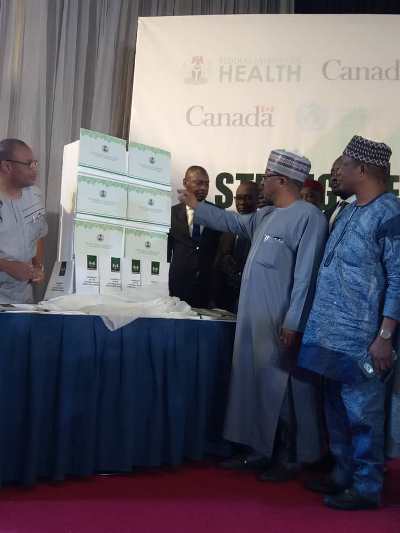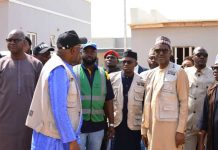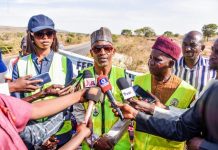The Honourable Minister of Health, Dr. Osagie Ehanire, has launched Nigeria’s Maiden Health Workforce Profile and National Registry.
The event which took place recently at the Transcorp Hilton Hotel in Abuja was attended by major stakeholders in the health sector.
During the event, Dr. Ehanire revealed that the Federal Government has been keen about obtaining accurate data on the existing health workforce in the country which would help facilitate health planning for a more efficient and optimized health care delivery for the Nigerian citizens.
He explained that this was in response to the World Health Organisation’s (WHO) advocacy for nations throughout the world to strive for the attainment of Universal Health Coverage and Sustainable Development Goals (SDGs), through the implementation of Global Strategy on Human Resources for Health (GSHRH) 2030.
The Minister further explained that the registry is a single and authoritative source of authenticated and validated health workforce information in Nigeria which provides up-to-date information on all health workers under the employment of National and Sub- National entities in both public and private sectors.
According to him, this would provide a necessary link for health workers to access administrative buildings and facilities within the health sector, saying that the architecture of the national health workforce registry aligns with those of other health information systems in the country such as the District Health Information System (DHIS2).
He therefore solicited for more support from other States that are yet to commence their workforce registries.
Earlier in his speech, the World Health Organization (WHO) Country Representative, Dr. Clement Peter, lent his voice for accountability within the health sector and urged the Nigerian Government to update the registry to cover all 36 States.
He also advised that they partner with the 14 regulatory bodies as well as the Department of Health Planning, Research and Statistics.
Dr. Peter informed that health workers in 10 States across Nigeria have been registered: Bauchi, Cross River, Anambra, Sokoto, Bornu, Adamawa, Abia, Osun, Niger and Edo.
He further advised that dedicated and skilled personnel from the Federal Ministry of Health should be drafted and engaged with the responsibilities of keeping the registry up to date.
He also proffered the Health Ministry to dedicate a budget line to the task to ensure the functionality of the registry, stressing that a strong and vibrant governance structure by the Minister of Health and Commissioners of Health at the State levels should be provided.
The Director, Health Planning, Research and Statistics, Dr. Emmanuel Meribole, lauded the Health Ministry’s collaboration with the WHO on the project’s take off. He mentioned that so far, Nigeria had successfully updated and validated its health workforce profile from 2012 to 2018.
The project was funded largely with the support of the Canadian Government through the Global Affairs, Canada, which focuses on enhancing the ability of front-line health workers to improve health care delivery in Nigeria.






